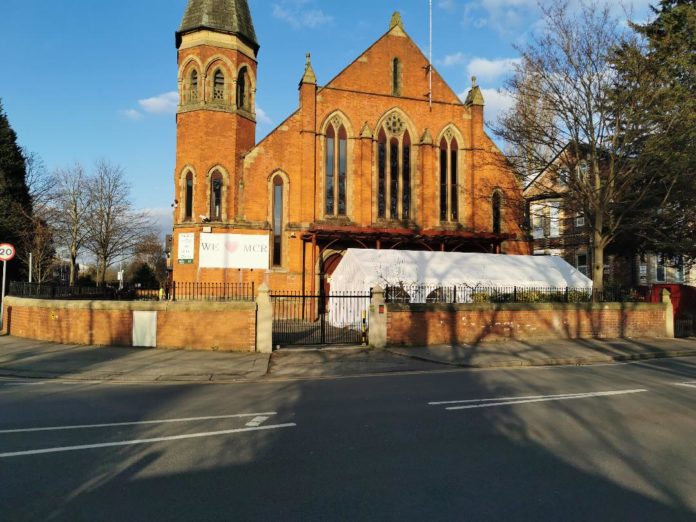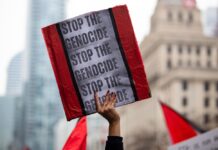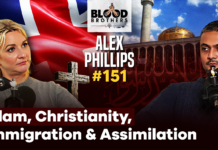The chairman of the Manchester Arena Inquiry has found that it is unlikely that Salman Abedi, who killed 22 people in a suicide bombing in 2017, was radicalised at Didsbury Mosque.
The mosque has been under scrutiny since it emerged that Abedi sometimes attended prayers there and his mother and brother (who have not been prosecuted in relation to the bombing) both worked there in a limited capacity.
But while delivering remarks to launch the final part of the inquiry, which deals with Abedi’s radicalisation among other topics, Sir John Saunders said: “I consider it unlikely having considered all the evidence that Salman Abedi was radicalised at the Didsbury Mosque, but some of the evidence given on behalf of the mosque about the association of the Abedi family with the mosque was unsatisfactory. It looked as though the Didsbury Mosque was trying to distance itself from the Abedi family in a way which I did not accept was accurate.
“The reality in my view was that the Didsbury Mosque did have a significant number of attendees who were connected to Libya but were attached to opposite sides in the conflict. Didsbury Mosque tried and largely succeeded in providing a broad church where both sides of the conflict could worship together. Although conflicts were generally avoided, this did on occasion lead to tensions between the two sides. The evidence given on behalf of the Didsbury Mosque could have been more helpful in enabling me to get to the truth.
“The Charity Commission has already prescribed a programme that the Didsbury Mosque must put in place. I hope that they will read my report and consider whether anything more needs to be done.”
Reacting to the report, Didsbury Mosque chairman Fawzi Haffar told 5Pillars: “We feel vindicated. We said all along that even if the family and the bomber himself used to frequent the mosque, we felt that a 10 minute sermon which is what he would have listened to on a Friday, would not radicalise a person like that. We always felt that he was perhaps radicalised in Libya or online, perhaps his friends where he lived were the biggest influence in his radicalisation.”
The report itself examined two main issues in relation to Didsbury Mosque – the extent of the connection between the Abedi family and the mosque and the links between the mosque and groups connected to the Libyan conflict.
Subscribe to our newsletter and stay updated on the latest news and updates from around the Muslim world!
It concluded that in a number of respects the evidence of mosque chairman Fawzi Haffar was “unreliable and, at some points, his evidence lacked credibility. My impression was of a man who was describing what he wished the position had been, rather than what it in fact was.”

Sir John added: “In my view, the evidence of Fawzi Haffar tended to downplay the strength of the links between the Abedi family and Didsbury Mosque in the years leading up to the attack. On the whole of the evidence, I am satisfied that Salman Abedi, Hisham Abedi and Ismail Abedi all attended the mosque to pray over a lengthy period, as did their father Ramadan Abedi. Ramadan Abedi and Ismail Abedi had, for periods, specific roles within the mosque.”
Sir John also criticised the mosque leadership.
He said: “Overall, I accept that the leadership of Didsbury Mosque had no positive wish for its premises to be used for political purposes, let alone for the support of violent Islamist factions fighting in Libya or elsewhere. My impression from all the evidence was that the leadership recognised that members of its congregation represented both sides of the conflict in Libya and wished to avoid offending either group. That led to a form of wilful blindness in respect of the activities that occurred at the mosque. That was weak leadership.
“On any view, in the years leading up to the attack, the leadership of the mosque did not pay sufficient attention to what went on at its premises and did not have policies in place that were robust enough to prevent the politicisation of its premises, which I find occurred. It should have done. That is a lesson that all religious establishments must learn.”
He concluded: “Didsbury Mosque has charitable status. It was suggested to me that, based
on the evidence heard during the Inquiry, I should report the mosque to the Charity Commission. Having considered this carefully, I have concluded that it is unnecessary. The Charity Commission has already put in place an action plan. The Charity Commission can consider what I have said in light of the progress Didsbury Mosque has made on the action plan. In those circumstances, the Charity Commission is best placed to reach its own judgement about whether further action is required.”





















